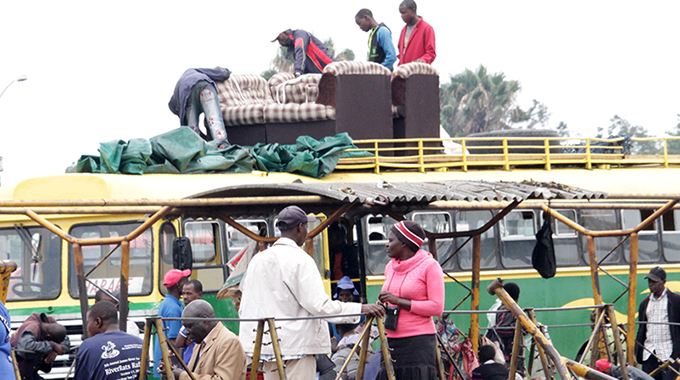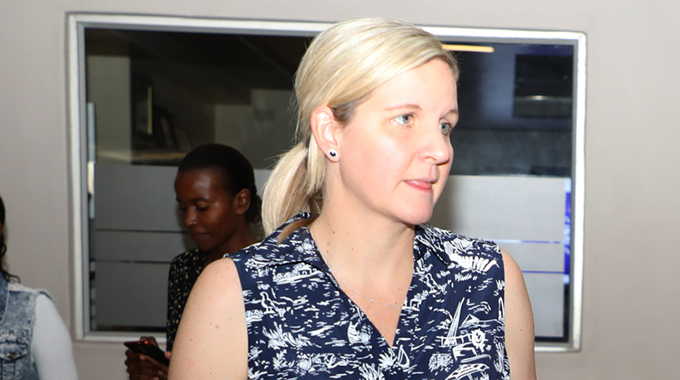EDITORIAL COMMENT : This has gone on for far too long

There is a disturbing trend that needs to be dealt with decisively because it distorts and makes the cost of travelling prohibitive for the ordinary Zimbabwean.
A snap survey of the cost of long-distance travelling undertaken by The Herald last week revealed tiers of rent-seekers that make it costly for bus operators to conduct their businesses normally, while for the travelling public, these tiers only fuel higher fares.
The survey only confirmed a cancer that, although known to local authorities, has however, been allowed to fester.
For example, a long-distance bus entering the Mbare Musika terminus to pick passengers is required to pay a compulsory fee of $150 charged by City of Harare.
And at every major town the bus stops over at on the way to its final destination, it has to pay its way.
All local authorities, from Harare to Chiredzi, need to appreciate that bus operators pay but expect that the attendant benefits enhance their operations and not the opposite.
While bus operators pay local authorities, such as the City of Harare, touts demand that they be paid for directing passengers to buses, even though the people travelling do not require such “help” from the touts.
Buses cannot leave the terminuses until they pay the touts. This is repeated wherever the bus stops on the way to its destination.
When a bus enters a terminus, it must be on the basis that it is free from the marauding touts.
Local authorities have their own security. One of the roles of the security is to protect buses and passengers from pickpockets and touts.
This does not appear to be happening.
In fact, the harassment often leaves travellers traumatised.
Not so long ago, a man intending to travel out of Harare lost his life after touts competed to get him into one of the long-distance buses.
He collapsed and died following the harassment.
The implicated touts await their day in court.
Sadly, local authorities appear not to have learnt any lesson from this tragic incident.
In the case of Mbare Musika bus terminus, the touts are said to be linked to “the party” — a reference to Zanu PF. In the past, Jim Kunaka led a terror militia, called Chipangano.
It carried out its terror campaign in Mbare in the name of “the party”.
“The party” appeared to condone the excesses of Chipangano, yet it could not relate this to the votes it lost at the polls as residents showed their distaste for acts done in its name.
It is hard to believe that “the party” is unaware of what the touts/youths’ terror campaign does to its image and, in the final analysis, attempts to woo the voters.
A crackdown on touts and anyone demanding “protection money” from bus operators will demonstrate to the vast majority of Zimbabweans that “the party” means business and will not tolerate excesses committed in its name.
There are lessons for council, other local authorities and Zanu PF to be learnt in order to ensure that the kind of activities reported by The Herald on Saturday do not contribute to an escalation in the cost of travel.
What is puzzling is that bus operators appear to have suffered and continue to suffer in silence.
Surely, there are some of them with links to Zanu PF? Why have they allowed this to go on without raising it at party level, or as an organisation at Government level?
They need to speak loudly and clearly because the activities of the touts/party youths affect their bottom line, and ultimately make the cost of travelling for the general public more expensive.
There must be absolute commitment to dealing with and eliminating these anti-people tendencies.
Local authorities must be able to provide tangible evidence of how they are using fees collected from buses.
Mbare Musika bus terminus is a case in point.
Although the City of Harare collects fees from bus operators, it has failed to provide decent facilities for travellers where they can be sheltered from the elements of weather.
The bus terminuses should be properly policed so that travellers are protected from pickpockets and touts, especially at night when travellers are extremely vulnerable.
The inescapable conclusion must be that local authorities are complicit.
Questions must be asked whether there is willpower to act when a problem that manifests itself at Mbare Musika bus terminus re-enacts itself in Chivhu, Jerera Business Centre, right up to Chiredzi unattended to?
It is tempting to conclude that inaction on the part of local authorities masks their business interests since any concerted and coordinated action would expose how individuals in local authorities are benefiting from the rot.









Comments